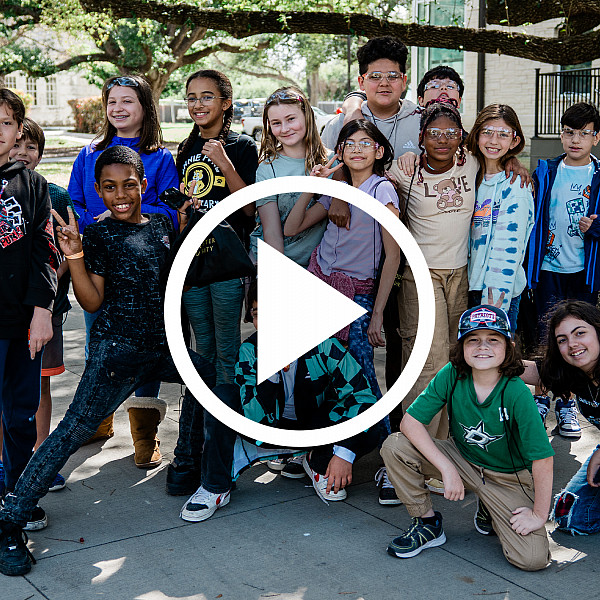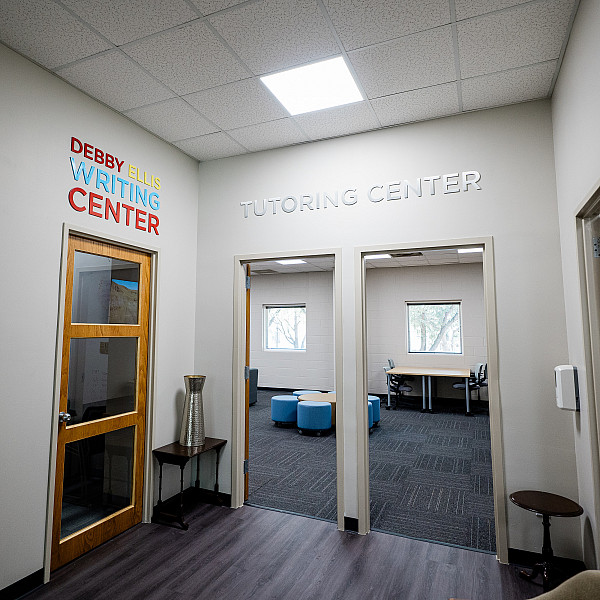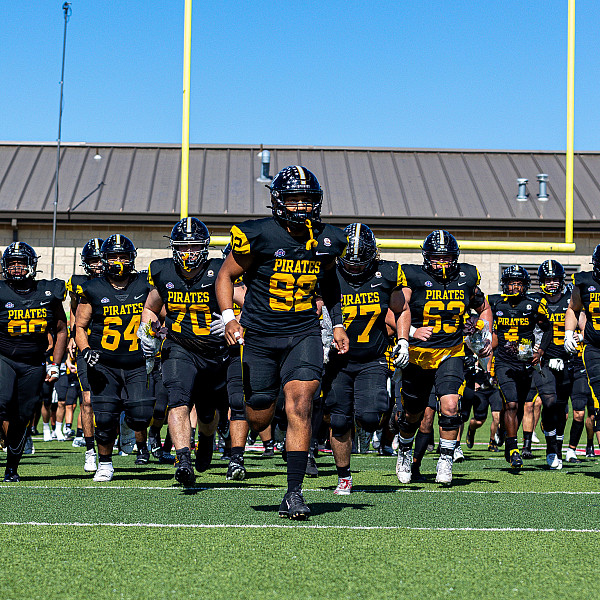News
Southwestern Mentoring Program Aims to Make a Positive Impact on Local Georgetown Elementary School Students
The newly-created Southwestern Mentoring Program pairs Southwestern University students with elementary students at two Georgetown ISD schools to serve as mentors, tutors, and friends.
March 11, 2025
March 11, 2025
Open gallery

In the fall, a group of Southwestern University students embarked on a mission to give back to the local community by serving as mentors in the newly-created Southwestern Mentoring Program. Through a collaborative partnership between Southwestern and Georgetown ISD (GISD), SU students serve as mentors, tutors, and friends to elementary students at two GISD campuses.
The Southwestern Mentoring Program initially launched with nine mentors for the fall semester before doubling that number in the spring. Niva Maskey ’28 was one of the students who joined the program for the spring semester. A business major with double minors in international relations and data analytics, Maskey is mentoring two bilingual students in second grade at Annie Purl Elementary School.
“This is a wonderful program for college students to be a part of to help guide the youth of Georgetown,” she said. “I think it’s really valuable for the students that we’re working with, not only in helping them improve their English, but also in helping them gain confidence around an older group of people.”
The overall goal of the program is to improve reading comprehension among the participating elementary students. Mentors spend time each week reading with students and helping them improve their comprehension skills. For psychology major and neuroscience minor Jaxson Haynes ’25, getting to spend time each week helping six students at Annie Purl Elementary with their reading skills is a full-circle moment.
“When I was in elementary school, I had a mentor who helped me with my reading, and she was a college student from the local university in the area,” Haynes said. “She was always excited to see me and I thought it was so great to get to learn with a college kid. I’m really glad that I get to give that back. It is definitely really rewarding.”
Similarly, anthropology and environmental studies double major Rose Reed ’25 drew on experiences from her past when she chose to become a mentor.
“I hope that I can keep kids excited about reading and maybe boost their confidence,” she said. “We do a lot of reading out loud, so I hope they’re not afraid to read out loud in class. That was something that I dealt with when I was younger, so I want to be very encouraging to them, and be there if they feel like they want to talk to someone about something in the middle of the school day.”
About three-quarters of the way through the first year of the program, GISD administrators are already noticing an impact from the program. Mollie Fry is the Academic Interventionist for Math and Reading at Mitchell Elementary and played an instrumental role in helping the program get started.
“One of the benefits that we’ve seen so far is improved attendance,” Fry said. “The students really look forward to their mentor being here, so it’s a motivation to get to school. Some of the things that we look at when we’re looking at a student is not only their academic performance, but their learner profile skills, which measure social skills. In addition to improved attendance, I would say we’ve seen growth in their academic performance, and in their learner profile skills.”
As much as the elementary school students have learned, the Southwestern mentors have perhaps learned more through their participation. Natalia Morales Robles ’27 grew up around younger family members and has years of experience as a babysitter, two factors that led to the political science major signing up to become a mentor. She currently mentors a group of kindergarteners and first graders at both Annie Purl and Mitchell Elementary Schools.
“I love it,” she said. “I love little kids. I think you can learn so much from them. Helping them by being a mentor, I feel like I’ve learned a lot. They’re just so innocent about everything around them. Being in college, things can get tough when you’re by yourself with no family, but these kids always give me a positive view of life. I love being able to help my community in this way.”
In addition to helping elementary school students with their reading comprehension and serving as an added support system, several mentors in the program use their time together to share their undergraduate experiences and open the door to college life.
“It’s really cool to be a college student and tell younger kids about college,” Reed said. “I get to ask them if they want to go to college and then hear how excited they are about that prospect. I didn’t really know any college students when I was in first and second grade, so it’s cool that they get to see that we’re not scary and that we are kind of grown ups, but not really.”
“I’m really hoping that [my mentees] can see me as someone who is in college and think ‘maybe that’s something that I want to do, and this will help me get there,’” Haynes said. “I only see them for 25 minutes each, but maybe those 25 minutes of extra work will make a really big impact in their future.”
The Southwestern Mentoring Program wouldn’t be possible without a generous grant from the Cullen Trust for Higher Education (CTHE). Through the grant, Southwestern is able to pay its students for their participation in this community-engaged, high-impact experience.
“Young students emulate their role models and are motivated to learn, grow, and earn their mentor’s respect,” CTHE Chairman Corby Robertson said. “College tutoring for younger students can capture the positive benefits of this dynamic relationship. Role models that demonstrate the value of a successful education generate faith, hope, and love in all the lives that they touch. The college mentors will build their own interpersonal skills and self-esteem. Mentoring benefits both the college tutor and the aspiring students. Success breeds success!”
“Southwestern University wants to make a community-wide impact and I feel like this is a great opportunity to do that. It wouldn’t be possible without the Cullen Trust, so to that organization, I say a huge thank you.” – Jaxson Haynes ’25
Students who are interested in becoming a mentor must submit an application then complete an interview process. Those who are selected to participate must complete an online training course and orientation with GISD staff. As the program continues to grow, several current mentors are excited about the program’s future potential.
“I think it would be awesome if more Southwestern students got involved,” Reed said. “It’s really not a huge time commitment and it’s very rewarding. It brightens my day, and I hope it brightens the kids’ days and takes a little bit off the teachers’ shoulders.”
All Southwestern students, regardless of major, are invited to participate in potential future mentoring opportunities. For more information, please contact Southwestern University Assistant Registrar Jami Locklear via email at locklearj@southwestern.edu.
“Really what you’re doing is coming to love on a kid and simply read with them,” Fry said. “You don’t have to have an education degree and you don’t have to know how to teach them. That’s not what it’s about. It’s about coming and loving on the kids and reading with them.”


















